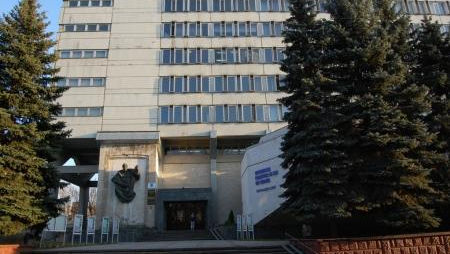Romanians associate the digitalisation of the state with practical and easy-to-use solutions such as electronic signatures for citizens and companies (43%), modern presentation sites for ministries (36.2%) and, to a lesser extent, the presence of institutions on social networks (17.2%), according to a research on the perception of Romanians regarding the digitalisation of the state.
The research was conducted together with AtlasIntel in November 2025 and it was presented on Tuesday by the Edge Institute, within the Digital Governance Summit 2025, held at the Cotroceni Presidential Palace under the High Patronage of the President of Romania. The survey captures how citizens relate to digital transformation: what works, what frustrates them, what are their expectations and what pace they consider acceptable for the modernisation of the state, according to a press release sent on Wednesday to AGERPRES.
For Romanians, digitalisation means, first of all, reducing bureaucracy and eliminating lost time spent on traveling between institutions, through administrative processes that can be resolved entirely online. At the top of the Romanians' expectations are the possibility of submitting applications without going to the counter or pay desk (68.7%), the automatic circulation of documents between institutions (61.4%) and the interoperability of databases, which would eliminate the need for certificates (57.1%).
The study shows that 76.4% of Romanians have used electronic services of public institutions in the past year, a level of interaction that allows them to directly assess how efficiently the state's digitalisation is working and what improvements they expect from public institutions, comment the survey's authors.
When it comes to assessing the current level of digitalisation, however, the Romanians' perception is reserved, with 65% of the respondents considering that public institutions are poorly digitalised, while areas such as internet quality and the digitalisation of private companies receive significantly better evaluations.
The study shows that Romanians see digitalisation as a useful tool, but not without risks. Among the most frequently cited benefits are reduced bureaucracy (65.3%), saving time (50.5%) and faster access to information and services (48.7%). At the same time, respondents also point to possible negative effects, such as the impact on vulnerable people (29.2%), the risk of job losses (28.3%) and the increasing dependence on technology (28.1%). Even in the context of the perceived advantages and disadvantages, almost 73% of Romanians consider digitalisation to be a good or very good thing.
On the other hand, however, the pace of state digitalisation is considered slow or very slow by 84% of respondents. "The perception indicates a clear misalignment between citizens' expectations and the real speed with which digital transformation in public institutions is advancing," the press release states.
Three-quarters of Romanians (75.8%) say that Romania needs major changes, a clear indicator of public pressure for modernisation. This strongly expressed need aligns with dissatisfaction with the current pace of digitalisation: people no longer want just online services, but a real transformation of the way the state functions, the same document also shows.
For 77% of Romanians, corruption represents the greatest concern, ahead of the general state of the education and health systems, high prices or the war in Ukraine. The context suggests that digitalisation - through transparency and automated processes - is perceived as a direct solution against this phenomenon.
The data show a high level of distrust in the Parliament (53% no trust), the Government (45%) and the Presidency (51%). City halls stand out slightly from this group, with a lower percentage of distrust (39%) and a higher level of trust (24%). However, Romanians overwhelmingly attribute responsibility for digitalisation to the prime minister and the Government (75.5%), followed at a distance by the Parliament (41.1%). Private actors or the president are perceived as having a secondary role.
The presentation of the study by Robert Berza (executive director of the Edge Institute), together with sociologist Barbu Mateescu and journalist Mihnea Maruta at the Digital Governance Summit 2025, highlighted that Romanians understand digitalisation much more maturely than previously thought: not strictly as a technological process, but as a pillar in the correct, efficient and transparent functioning of the state. "The data shows us that expectations are clear: Romanians want efficient public services, without unnecessary bureaucracy, and a state that respects people's time. "Digitalisation is just the tool - the real stake is trust," said Robert Berza, executive director of the Edge Institute, quoted in the press release.
The study was conducted on a representative sample of 2,240 adult respondents from Romania, with random digital recruitment (Atlas RDR). The data were collected between November 12-19, 2025.
































Comentează